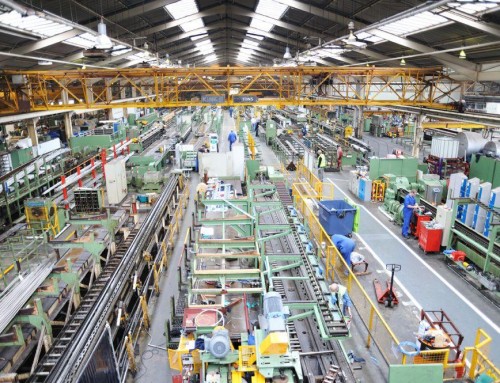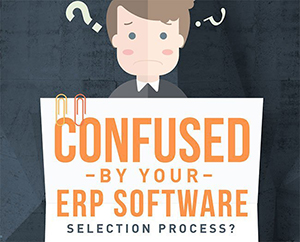6 tips for choosing the right ERP solution for your manufacturing business
As a manufacturer, there’s constant pressure to increase output, maximise profits, and improve visibility and productivity across your supply chain. In order to do so, having a reliable enterprise resource planning (ERP) solution in place is becoming increasingly vital.
In fact, according to Business Insider, 70% of retail and manufacturing companies around the world have now started a digital transformation project for their supply chain and logistics.
However, while an ERP solution is becoming more and more imperative, finding the right solution and determining which one best suits your business’ unique needs can be challenging.
At Leverage Technologies, we specialise in helping businesses understand and define their ERP requirements. Based on our experience, here are our 6 tips for choosing an ERP solution in the manufacturing sector.
#1 – Define your needs… in detail
While it may sound an obvious consideration, most businesses don’t have a genuine understanding of their specific needs when it comes to ERP. Understanding exactly which features are essential for your business – and which are simply “nice to have” is important. You need to discuss what you want to get out of the system, as well as how a new solution would fit into your ideal business.
As part of this, you also need to determine your level of organisational readiness:
- What system are you using now – if any?
- How likely are your people to adopt a new solution?
- Is your business ready for a complete process overhaul, or will you need to introduce the new solution gradually over time?
Be sure to document your requirements, and provide these to any potential supplier, so they can indicate exactly how their proposed solution will deliver. As well as gaining a more detailed understanding of each solution, you’ll also be able to compare their offering against your specific needs.
#2 – Prioritise integration, scalability and automation
Today, in order to gain overarching insights into your entire manufacturing operation, an integrated solution is vital. You need a solution that will connect seamlessly with other solutions from across your business.
With a solution such as SAP Business One, for instance, you can bring together all of the disparate information from across your business, and manage it all via the one, central location.
Similarly, to generate tangible results, it’s important to ensure that you can automate time-consuming tasks as much as possible – like ordering inventory and monitoring warehouse stock. Decide on the appropriate level of automation for your business, and consider your budget, the type of manufacturing you do, and your future requirements.
Also, while some ERP solutions might be right for your business now, do they fit with your predicted growth? Will you need to replace the solution down the track, or can it scale according to demand?
#3 – Insist on ease of use
No matter how sophisticated or robust your software is, it will only deliver results if it’s used by all parts of the business. This includes the head office staff, workers in your warehouses, plus all other stages of the supply chain.
For this reason, it’s vital that the ERP solution you choose is accessible and easy to use.
#4 – Determine your budget
As with any large-scale investment, it’s important to allocate a budget and determine the best way to pay for the new solution. You may opt to pay up-front as a capital expense, or prefer to acquire the solution as a cloud-based managed service and therefore pay month-by-month.
Remember that the cost of an ERP implementation depends on several factors, including the size of your business, the number of ERP users, your requirements and integrations, any deployment options, and any customisation you need.
When first entering the market for an ERP solution, we find that many organisations underestimate the budgetary requirements and the work required to implement ERP. This leads to organisations opting to do nothing – which can be a far costlier proposition long-term.
Still not sure how much should you spend on an ERP system? Take a look at this infographic which breaks down the tentative ERP implementation cost by business size. This information is based on Leverage Technologies’ experience in implementing ERP systems for over 180 companies since 2005.
#5 – Allocate an “ERP team” internally
It’s important to define at the very start of your project who within the business will be responsible for selecting and implementing your ERP solution – an internal ‘dream team’.
We recommend you nominate an “ERP team” and define the:
- Implementation team members
- Project team structure
- Project team roles
Be aware and account for the fact that your team will need to take responsibility for certain parts of the implementation. ERP training, user acceptance testing, and the system blueprint will all require time and input from your internal team.
Take a look at our previous blog ERP Implementation Roles & Responsibilities Guide: Defining Your ERP Dream Team for tips on building the right team.
#6 – Demand answers from your suppliers
Before selecting any solution, make sure your ERP team does the research – and ensure that any suppliers you are speaking to are able to provide you with the answers you need.
Ask suppliers to:
- Indicate how their ERP solution is ideally suited to the type of manufacturing that your business does;
- Demonstrate their solutions to you;
- Draft scope of work;
- Showcase how their solution will help you overcome specific bottlenecks in your manufacturing process.
Here is the story of one of our SAP Business One customers in the manufacturing industry.
Conclusion
Leverage Technologies has extensive experience in providing ERP solutions for the manufacturing sector. We’ve proven, time and again, that we can quickly and efficiently implement low-risk, best-practice ERP solutions, and that we can deliver a lower cost of ownership for our clients.
Plus, when you choose to work with Leverage Technologies, you gain access to a team with extensive shop-floor experience and we can also offer guidance to help you enhance your overall operational efficiency.
To find out more about SAP Business One or to schedule a demo, call us on 1300 045 046 or email info@leveragetech.com.au.









Leave A Comment